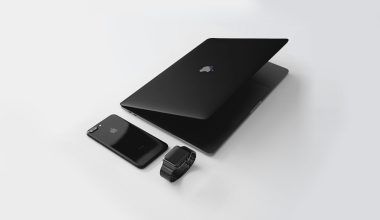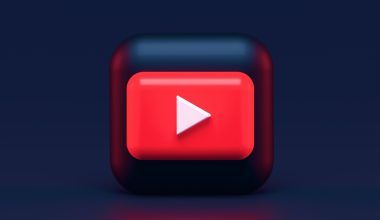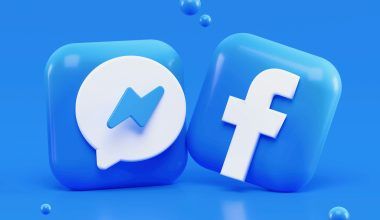The dream of every independent artist is to share their music with the world and earn from it. But many assume that signing with a label is the only way to make it big. This is far from the truth! With platforms like iTunes, independent artists have the power to monetize their tracks without needing a label. In this blog, we’ll guide you through everything you need to know about making money from your music on iTunes independently. Whether you’re just starting out or looking to expand your reach, this guide will help you take control of your music career.
Why Monetizing on iTunes Matters for Independent Artists
iTunes is one of the most prominent platforms for selling music digitally. Unlike streaming platforms, where you’re paid per stream, iTunes lets fans purchase your track directly. Each sale contributes to your revenue, helping you earn more from your music. Plus, having your track on iTunes boosts your credibility as an artist and makes your work easily discoverable.
For independent artists, this can be a game-changer. You don’t need a middleman or a record label to make it happen—you just need the right tools and strategy.
Step 1: Get Your Music Ready for Distribution
Before you can monetize your track on iTunes, your music needs to be ready for distribution. This means ensuring it meets industry standards in terms of quality and format.
- Record and Mix Your Track Professionally
Invest in a good recording studio or professional home setup. Fans appreciate polished tracks, and high-quality music is more likely to sell. - Master Your Track
Mastering ensures your song sounds great on all devices. If you’re new to this, consider hiring a professional mastering engineer. - Convert Your Track to the Required Format
iTunes requires tracks in a specific format, typically WAV files at 16-bit/44.1kHz. Ensure your files meet this standard to avoid distribution issues.
Step 2: Choose a Digital Distribution Service
Since iTunes doesn’t let independent artists upload music directly, you’ll need a digital distribution service. These services act as middlemen, helping you get your music on platforms like iTunes, Spotify, and Amazon Music.
Some popular options include:
- Deliver My Tune: Known for its user-friendly interface and affordable pricing.
- CD Baby: Offers a one-time fee option for lifetime distribution.
- DistroKid: Perfect for artists planning to release multiple tracks.
Compare these services based on your budget, features, and long-term goals.
Step 3: Register Your Music for Royalties
Monetizing your track on iTunes isn’t just about selling your song—it’s also about collecting royalties. To ensure you’re paid for every sale and use of your music, you’ll need to register your track with the right organizations.
- Sign Up with a Performing Rights Organization (PRO)
PROs like ASCAP or BMI collect royalties when your music is played publicly. - Get an ISRC Code
An International Standard Recording Code (ISRC) is essential for tracking your music sales. Most distribution services provide this for you, but you can also apply for one independently. - Consider Publishing Administration
If you write your own songs, a publishing administrator can help collect mechanical royalties and ensure you’re compensated for your work.
Step 4: Upload Your Music
Once your track is ready and you’ve chosen a distributor, it’s time to upload your music. The process is straightforward:
- Log in to your chosen distribution service.
- Fill in all necessary details, including track title, artist name, and genre.
- Upload your WAV file and cover art.
- Set your price. Most singles on iTunes are priced between $0.99 and $1.29.
Step 5: Create Eye-Catching Cover Art
First impressions matter, especially in the digital world. Your cover art should grab attention and reflect your music’s vibe. If you’re not a designer, platforms like Canva make it easy to create professional-looking artwork.
Step 6: Promote Your Track Effectively
Monetizing your track on iTunes isn’t just about uploading it—it’s about making sure people know it exists. Here are some simple yet effective ways to promote your music:
- Social Media Marketing
Share teasers, behind-the-scenes videos, and links to your track on platforms like Instagram, TikTok, and Twitter. - Email Marketing
Build an email list of your fans and notify them about your release. - Collaborate with Influencers
Team up with influencers who resonate with your genre. They can help spread the word to a wider audience. - Leverage Paid Ads
Platforms like Facebook Ads allow you to target specific audiences, ensuring your music reaches potential fans.
Step 7: Track Your Sales and Analytics
To maximize your revenue, you need to know how your track is performing. Most digital distributors provide analytics dashboards that show you sales data, listener demographics, and more. Use this information to refine your promotion strategy and release future tracks.
Benefits of Monetizing Without a Label
Going independent has its perks. Here are a few reasons why monetizing your track on iTunes without a label is worth it:
- Complete Creative Control: You decide how your music sounds and looks.
- Higher Revenue: Labels take a cut of your earnings, but as an independent artist, you keep most of the profits.
- Direct Fan Connection: Interacting with fans directly helps build a loyal community.
Common Challenges and How to Overcome Them
While going independent is empowering, it comes with challenges:
- Limited Budget: Focus on affordable tools and DIY strategies.
- Time Management: Create a schedule to balance music creation and promotion.
- Lack of Industry Knowledge: Educate yourself through online courses and communities.
Conclusion
Monetizing your track on iTunes without a label is entirely possible with the right steps. By preparing your music, choosing the right distribution service, and promoting your track effectively, you can reach your audience and earn from your passion. Independence in the music industry is more achievable than ever, so take charge of your career today.
Remember, you don’t need a label to succeed—you just need dedication, strategy, and a love for your craft.
For further reading, explore these related articles:
- The Ultimate Guide to Birthday Music MP3 Download: Songs for Every Celebration
- Exploring Allegra Song Lyrics: A Journey Through Emotion and Melody
For additional resources on music marketing and distribution, visit Deliver My Tune.






